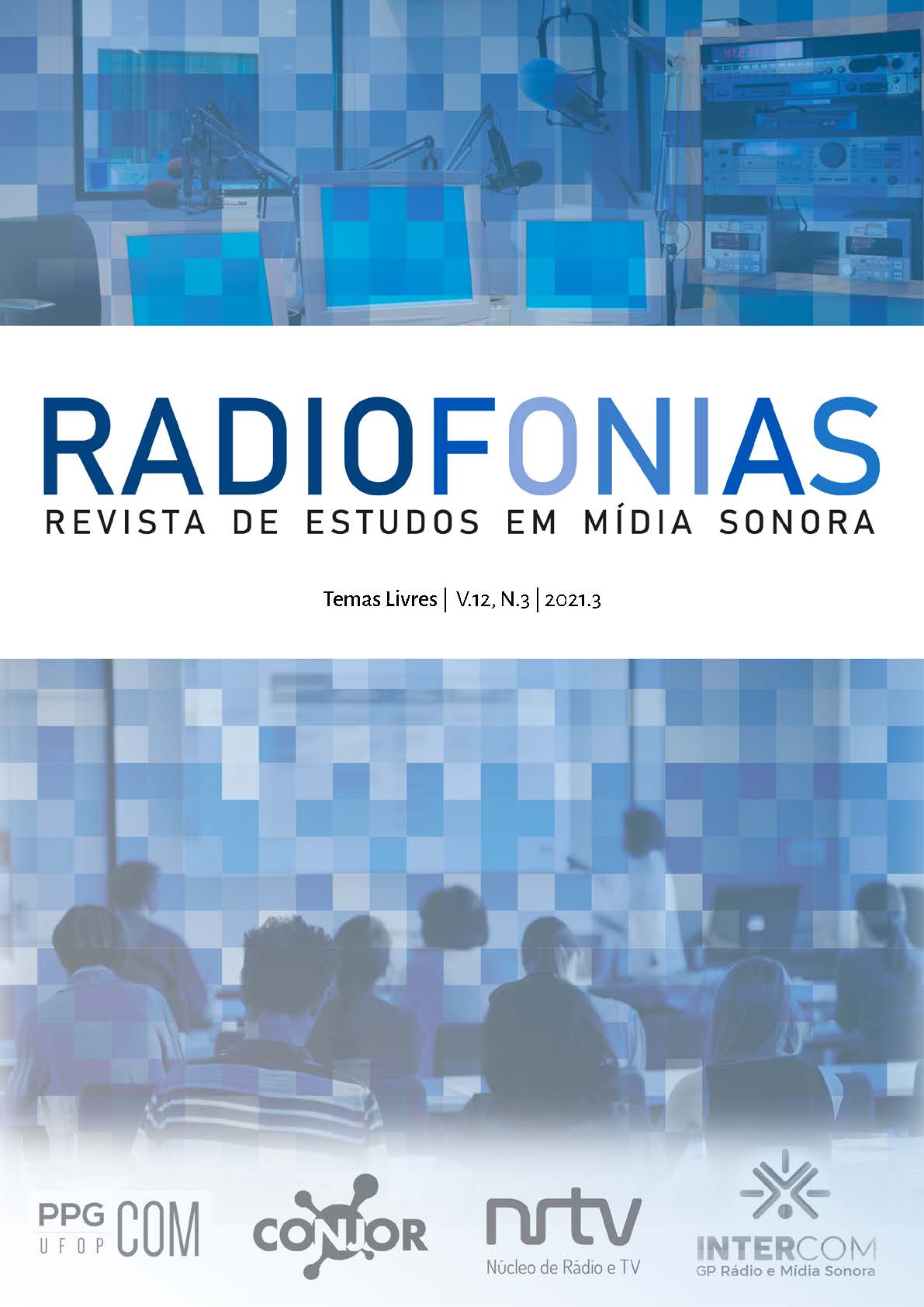“Programa do Galinho” on Radio Educadora do Maranhão
the challenge posed by the migration from AM to FM band to radiophony with a bias in the rurban tradition
Abstract
The intention of this article is to reflect on the resistance of community practices, with a strong presence of primary and secondary orality (NGO, 1998; ZUMTHOR, 1993), in the context of relations between people from rural and urban areas in contact with broadcasting. The corpus is the “Programa do Galinho” from Rádio Educadora AM in São Luís do Maranhão. It is a radio product with more than five decades that faces the challenge of a possible migration of the station to the FM band. The concept of memory and the perception of additional trades today is also promoted. The vocal performance of Carlos Henrique, Galinho, who died in 2021, a victim of Covid-19, is analyzed in such a way as to highlight his protagonism with the listener/advertiser of notices and advertising messages of popular trade in fairs and markets, an attitude that, together with news about festivities in the countryside, composes a repertoire that resists time.
References
CHARTIER, Roger. A história e a leitura do tempo. Tradução de Cristina Antunes. Belo Horizonte: Autêntica Editora, 2009.
DARIVA, Noemi. Comunicação social na Igreja: documentos fundamentais. São Paulo: Paulinas. 2003.
FERREIRA, Jerusa Pires. Os ofícios tradicionais: cultura é memória. Revista USP, São Paulo, n. 29, p.102-106, mar./maio 1996. Disponível em: https://www.revistas.usp.br/revusp/article/view/25645/27383. Acesso em: 19 fev. 2020.
FREYRE, Gilberto. Rurbanização: que é? Recife: Editora Fundação Joaquim Nabuco, 1982.
JACKS, Nilda; TOALDO, Marialgela Machado; LIMA, Danillo dos Santos. Rurbanidade no “Brasil profundo”. Análise de similitude em entrevista com jovens gaúchos. Animus, Santa Maria, RS, v. 19, n. 41, p.137-156, 2020. Disponível em: https://periodicos.ufsm.br/animus/article/view/63379/pdf. Acesso em: 23 set. 2021
LE GOFF, Jacques. Por amor às cidades. Tradução de Reginaldo Carmello Corrêa de Moraes. São Paulo: Fundação Editora da UNESP, 1988.
NERI, Marcelo (coord.). Mapa da inclusão digital. Rio de Janeiro: FGV, CPS, 2012. Disponível em: https://bibliotecadigital.fgv.br/dspace/bitstream/handle/10438/20738/Sumario-Executivo-Mapa-da-Inclusao-Digital.pdf. Acesso em: 19 fev. 2020.
ONG, Walter. Oralidade e cultura escrita: a tecnologia da palavra. Tradução de Enid Abreu Dobránszky. Campinas, SP: Papirus, 1998.
ORTIZ, Miguel Ángel; MARCHAMALO, Jesús. Técnicas de comunicação pelo rádio. São Paulo: Edições Loyola. 2005.
RÁDIO EDUCADORA 560. Programa do galinho. 2020a. Disponível em: https://onedrive.live.com/?authkey=%21ADneRPFDIVTXrz4&cid=1A3E4ACF196E4C11&id=1A3E4ACF196E4C11%212235&parId=1A3E4ACF196E4C11%21634&o=OneUp. Acesso em: 19 fev. 2020.
RÁDIO EDUCADORA 560. História. 2020b. Disponível em: http://www.educadora560.com.br/historia/. Acesso em 19 fev. 2020.
RICOEUR, Paul. A memória, a história, o esquecimento. Tradução de Alain François. Campinas, SP: Editora da Unicamp, 2007.
TINHORÃO, José Ramos. As festas no Brasil colonial. São Paulo: Editora 34, 2000.
ZUMTHOR, Paul. A letra e a voz. Tradução de Amálio Pinheiro e Jerusa Pires Ferreira. São Paulo: Companhia das Letras, 1993.


